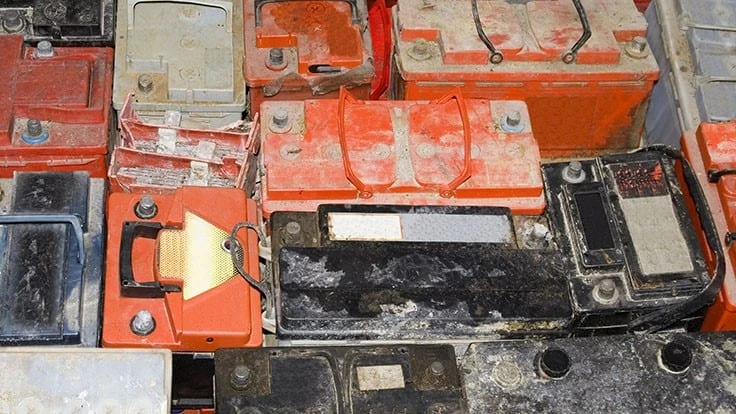
© Suljo | Dreamstime.com
That’s what the company was doing at its plant in McCarran, Nevada. It was scaling up production at the plant when it caught fire in late 2019 (not related to the technology or the equipment).
After the fire, Aqua Metals embarked on a “capital-light migration,” Cotton says, focusing on licensing the technology rather than owning and operating facilities.
“The technology has really been case hardened,” David Regan, senior director, commercial, at Aqua Metals, says. Aqua Metals also has added automation and control functions. “When you’ve got computers controlling machines at a very microlevel by the microsecond, you can achieve greater efficiencies and throughput. That is a big part of what we have done to improve the technology over the past year or so. We’ve also added remote monitoring capability to support customer environments. This equipment is very sophisticated, we need to be able to support that and see what’s going on, and so does the client.”
Regan says Aqua Metals has spoken with major lead-acid battery recyclers in the U.S. about licensing the technology for retrofitting their existing facilities or adding capacity to their existing facilities without increasing their emissions, though greenfield installations also could be a possibility. “In terms of partnership, installing at current recycling facilities is where we are focused. We want to choose the right company to move with first,” he says. “We are getting quite close and target midyear for making that public.”
Aqua Metals also is in talks with battery producers, such as Clarios, Regan says. “We see a real value in the high purity that we produce in our lead, and there are battery manufactures that would really value that purity, particularly stationary battery manufacturers,” he says. “We see a lot of opportunity down the road to partner with manufacturers. Right now the focus has been on recyclers,” though he notes that some recyclers are manufacturers as well.
Aqua Metals recently filed a provisional patent for a new methodology for producing battery-manufacturing-ready active material, or oxide, directly from its AquaRefining process that it expects will provide added economic and environmental benefits for AquaRefining licensees. The new approach would help the lead-acid battery industry bypass refining and ingoting, resulting in significant savings in time, money and emissions as the AquaRefined lead briquettes would transition directly to the oxide manufacturer, Aqua Metals says.
With so much focus on lithium-ion batteries (LIBS) these days, it’s easy to forget about the humble lead-acid battery. However, Aqua Metals says demand the lead-acid battery market is growing at a compound annual growth rate of 3 to 4 percent. Cotton says the technology is well-suited for use as backup storage at data centers. He says energy storage also is key to the growth of renewable energy, and lead-acid batteries are better suited for this application than LIBs in many ways. Additionally, the batteries are used in some electric vehicles for auxiliary power.
While the prospects look promising for lead-acid battery manufacturing and recycling, Aqua Metals also believes its technology can be applied to LIB battery recycling and recently took a 10 percent stake in LiNiCo, a Nevada-based lithium-ion battery recycling startup.
Cotton says AquaRefining technology can be used to recover high-value metals from recycled LIBs. Aqua Metals says early phase testing shows its methodology that originally was developed to plate lead from lead-acid batteries can be used to plate the high-value metals found in LIBs, such as cobalt, nickel and manganese.
Sponsored Content
Redefining Wire Processing Standards
In nonferrous wire and cable processing, SWEED balances proven performance with ongoing innovation. From standard systems to tailored solutions, we focus on efficient recovery and practical design. By continually refining our equipment and introducing new technology, we quietly shape the industry—one advancement at a time.
“There’s a reason we’re called Aqua Metals and not Aqua Lead,” Cotton says.
Get curated news on YOUR industry.
Enter your email to receive our newsletters.
Latest from Recycling Today
- Open End Auto Tie Balers in stock, ready to ship
- Reconomy names new chief financial officer
- ICIS says rPET incentives remain weak
- New Jersey officials award $16.2M in annual recycling, waste reduction grants
- Linder Industrial Machinery announces leadership changes
- First phase of EPR scheme launching in Alberta
- Veolia technology helps PetStar with water conservation
- Athens Services terminates contract with San Marino, California








